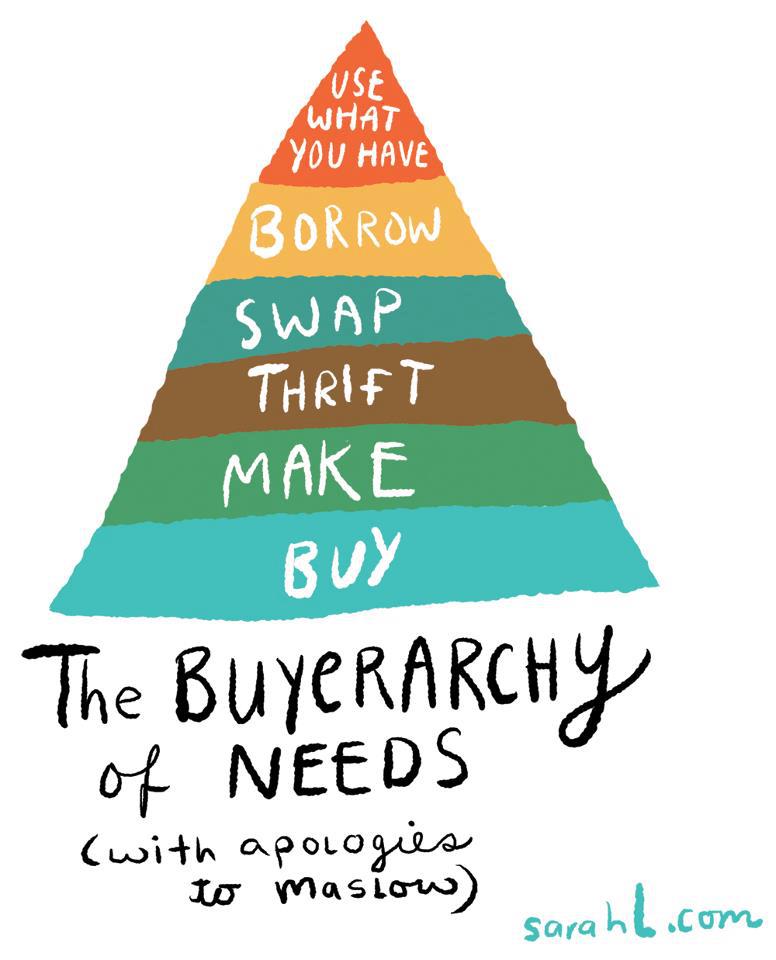My views on Sustainability Marketing
Monday, April 1st, 2013Going into this course, I really did not have any expectations, but chose to enrol not because the course was required, but because the topic seemed very interesting to me (I am not even in the marketing option). To my surprise, I have thoroughly enjoyed all the lectures and topics covered throughout the term, and recommend the course to anyone who is interested in sustainability, or looking for alternatives to gain competitive advantages for their business.
Has it changed how you think about how you live your life as a consumer?
Yes, and no. I think this course was designed to target the business, rather than the consumer. As a student post-course, of course I am more sustainably aware and conscious, but I am still on a limited budget. So if given the choice between regular products and green products while shopping, I would probably not be willing to dish out the extra cash for a green product if it is not clearly made known to me the advantages. Ultimately, it comes down to whether the benefits outweigh the costs for consumers. And so this leads me back to what this course is about: how can a business best advertise and educate consumers on the benefits of their sustainable product so that they will be willing to make the switch? One example of a product that was introduced to us during class, the Nest Learning Thermostat, is a good example of a product with transparent and tangible benefits. It is easy and simple for regular consumers to understand the advantages of the thermostat, and moreover it is relatively easy for the company to communicate the benefits of their product. As a consumer, it makes a lot of sense to purchase this product, and by doing so, you are contributing to an ideal win-win senario: saving energy and natural gas, while saving money on your heating bill.
Has it changed how you think about business?
After taking this course, it is very clear to me that if a business wants to remain competitive and profitable, they need to engage in some sort of sustainable practice. Sustainability is no long just a trend for businesses – it has now become the norm. As more and more consumers are becoming socially conscious, they will associate themselves with brands whose values align with their own. Not only does sustainability improve a businesses’ ethical stance, there are numerous cost advantages including distribution, packaging, and waste savings. When I think about businesses we’ve come across in class that have changed their business to incorporate sustainability in some way, the first that comes to mind is Harbor Air. Harbor Air purchased the full-audit services for $10,000 from Offsetters, and in return the company increased their revenues by $250,000 as they received a 12% increase in customers thanks for their investment. Even after adding $0.50 per ticket, Harbour Air’s customers still chose to fly with them vs competitors because of the company’s commitment to carbon neutrality and environmental relief. Harbour Air and Offsetters are great examples of how incorporating sustainable practices and values into your business model will have great returns for your business.
So in summary, I took a lot away from the course. I really enjoyed the live project and working with Offsetters, and also learning about other sustainable brands and the initiatives other companies are implementing into their business. Particularly, the cases such as Clorox and Burt’s Bees really opened by eyes to realizing that there are so many companies already attempting and successfully following through with sustainable initiatives, whether consumers are aware of them or not.
